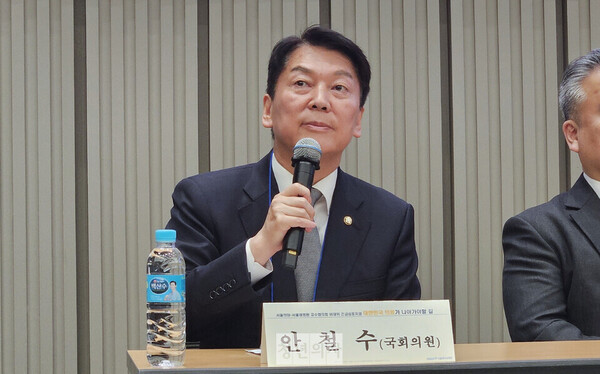Criticism has even arisen from the governing party, which argues that the government's measures to bring back medical students and trainee doctors amount to “robbing Peter to pay Paul.”

"We cannot solve the current medical crisis by taking makeshift steps like ‘robbing Peter to pay Paul,’" Ahn Cheol-soo, a fourth-term lawmaker from the ruling People Power Party, wrote on his social media on Thursday. Rep. Ahn emphasized that the increase in medical school students should be delayed until the 2026 academic year and the increase should be gradual.
As things stand now, we have no choice but “not to get sick," Ahn added.
"If trainee doctors and medical students do not return, the medical vacuum will eventually lead to the healthcare collapse. However, it is still difficult to solve the problem,” Rep. Ahn said. “That’s because there is no change in government policies, such as medical school student increase and essential care medical policy packages, which they (medical students and junior doctors) have made as conditions for return."
Ahn pointed out the situation is even more serious for training hospitals, which face heavy monthly deficits due to the departure of interns and residents.
"At this rate, bankruptcies will likely occur at rural medical centers sooner or later," Ahn said. "If the mass flunking of medical students becomes a reality, it will be difficult to find interns, public health doctors, and military doctors, as the 3,000 new doctors produced annually will disappear," he said. “There will be 7,500 students in a school year, 2.5 times the current admissions (existing 3,000 plus 1,500 increased quota and 3,000 flunked students), making normal education virtually impossible."
In the short term, the country will suffer from a severe doctor shortage and hospital bankruptcies in the coming years. In the long term, the low-priced but high-quality K-healthcare that has been painstakingly built over decades is on the verge of collapse, Ahn said.
Ahn stressed that the government must admit it cannot solve the problem with hardline, one-size-fits-all policies.
"Many say that if we just tell them to come back, promising we won't penalize them, the MZ generation of medical students and trainee doctors will not return," he said. "Induce them to agree on the principle of gradually increasing the number of medical school seats, but assure them the increase will be implemented from next year's entrance examination and a public discussion committee will be established to discuss the specific size of the increase and how to expand essential medical care."
Ahn continued, "We are running out of time. Time solves some problems, but the current medical system is becoming more broken as time passes. The government and the medical community should put their heads together as soon as tomorrow and discuss the fundamental prescription on all topics, including next year's medical school admissions."

